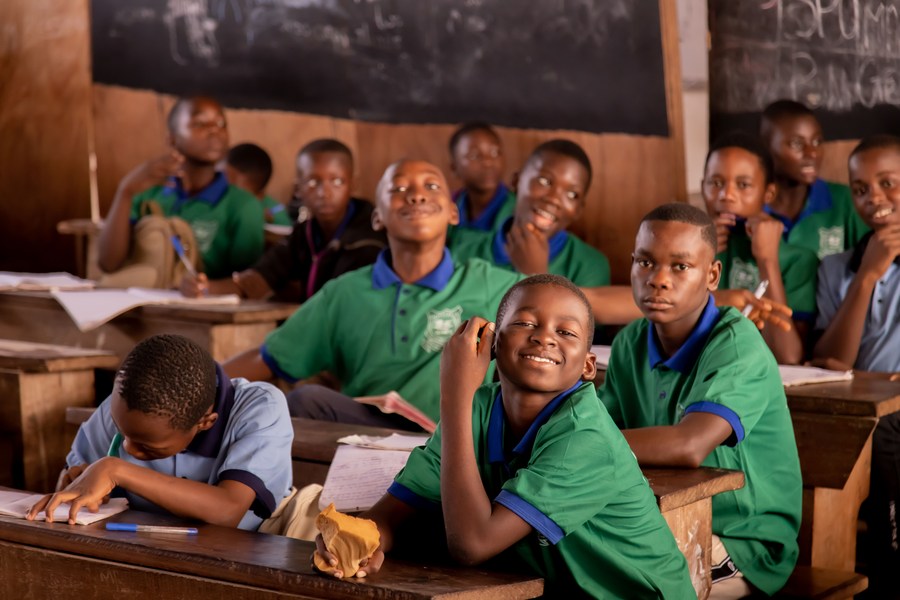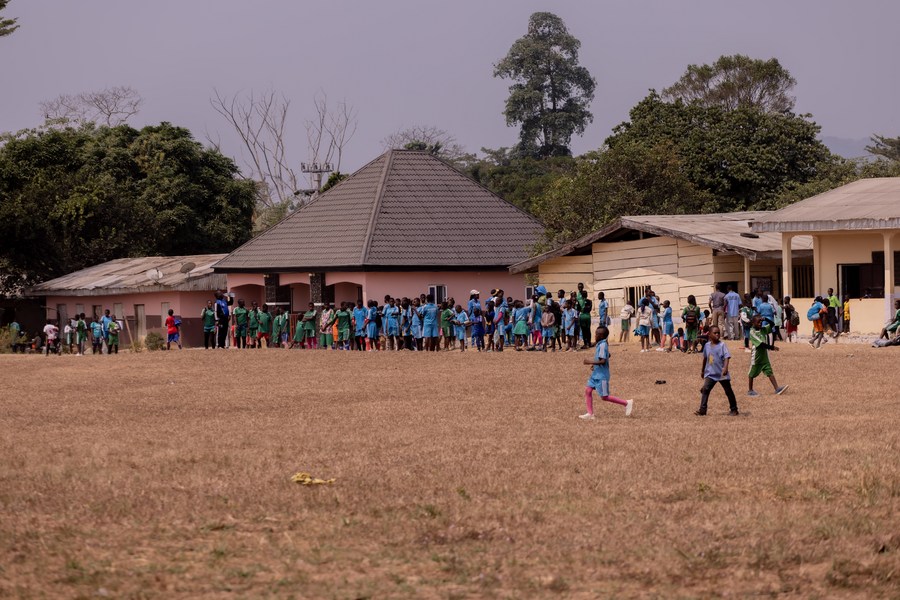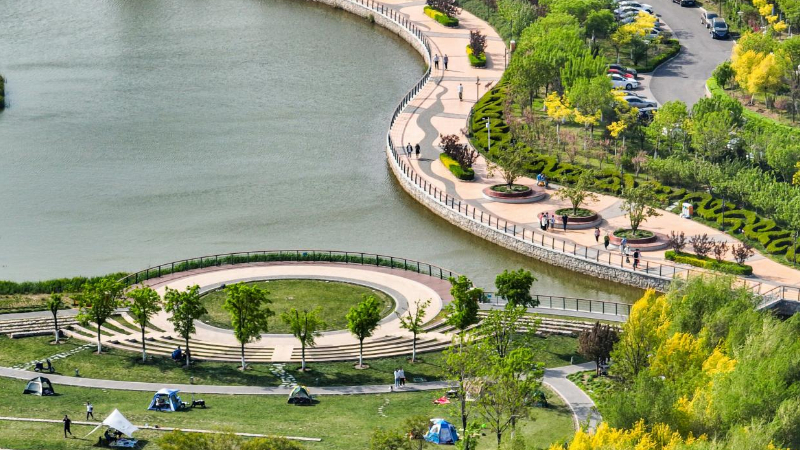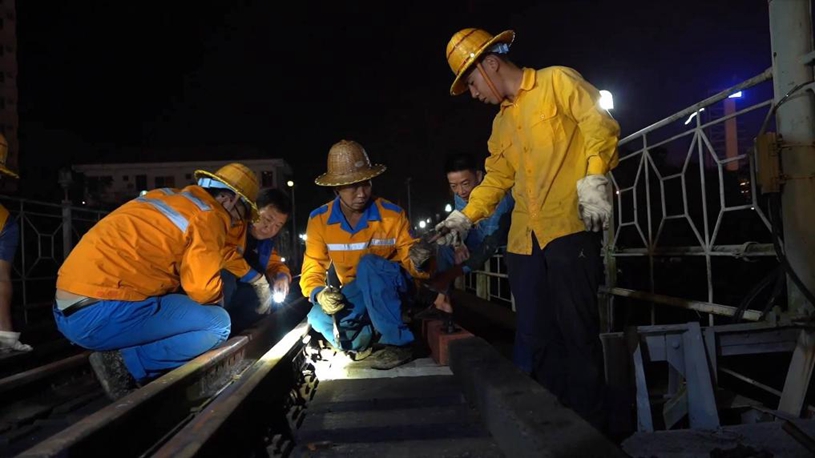
Students study in a classroom at a school in the Southwest region of Cameroon, Jan. 24, 2024. (Xinhua/Muleng Timngum)
In the early morning in Buea, the chief town of Cameroon's war-torn English-speaking region of the Southwest, 18-year-old Carine and her younger sister, Judith, are getting ready for school. But for these teenagers, it has been a long time coming.
YAOUNDE, Jan. 26 (Xinhua) -- In the early morning in Buea, the chief town of Cameroon's war-torn English-speaking region of the Southwest, 18-year-old Carine and her younger sister, Judith, are getting ready for school. But for these teenagers, it has been a long time coming.
Judith is 15 but is still in primary school. Carine was supposed to be in university, but she just started secondary school. They are among hundreds of thousands of children in the country's two English-speaking regions of the Northwest and Southwest, who have resumed school after five years.
Carine and Judith had to stay at home since 2017 due to a persistent crisis in the regions, where separatists have been clashing with government forces in a bid to secede from the French-majority Cameroon and create an independent nation they call "Ambazonia."
"I feel so happy I am able to attend school after five years. This is a dream come true," Carine told Xinhua in Buea, asking for her family name and school not to be published.
Judith and Carine fled the locality of Ekona in the region with their family in 2022 amid renewed fighting and relocated to Buea where they enrolled in school last year. Still reeling from her ordeal in the war-torn zone, Judith said she felt especially fortunate to go to school because some of her friends have not been able to study due to the conflict.
"Running up and down from bush to bush was difficult. Now I am focused on my studies to fulfill my dream of becoming a doctor," said Judith, who also requested that her family name not to be mentioned.
Fighting between government forces and armed separatists has made it too dangerous for formal lessons in the Anglophone regions of the Central African nation. Separatists have enforced a school boycott in the troubled regions since 2016 to protest against what they described as educational injustices against English-speakers. The school boycott left more than 800,000 children out of school, according to UNICEF.

Students play on a playground at a school in the Southwest region of Cameroon, Jan. 24, 2024. (Xinhua/Muleng Timngum)
Now, schools are gradually reopening in safer areas of the regions after Cameroon's military liberated more than 100 villages and schools from rebel occupation.
"In 2022, we expected 429 secondary schools to reopen, but only 233 functioned. In 2023, almost all the schools reopened, and this year, attendance has improved significantly," said Hannah Mbua Etonde, chief of secondary education in the Southwest region.
"We are seeing students coming back to school in their numbers; many schools are also gradually reopening. The situation is generally improving," said Adolph Lele Lafrique, governor of the Northwest region, adding that since the start of the year, there has been few or no attack on teachers, students and schools in the region.
The armed conflict is not over, but some separatist leaders are now encouraging children to return to school, saying a boycott is no longer a weapon of their struggle for independence. Parents here said they're breathing a sigh of relief after the call for school resumption by separatist leaders.
Augustine, whose name has been changed for safety reasons, teared up thinking of the bombing that leveled his son's primary school in Batibo, a locality in the Northwest region. He's determined to ensure the eighth-grader continues his studies.
"My son's school is not there anymore, but he has started school here in Buea. The most important thing is for our children to learn. Almost all schools are now functioning, and parents are no longer afraid to send their children to school," he said.
"My humble plea as a parent to the administration is that security should be guaranteed 100 percent, 24/7 for our kids to go to school," said Michael Njie, whose child started school in 2022 after spending four years at home.

Students study in a classroom at a school in the Southwest region of Cameroon, Jan. 24, 2024. (Xinhua/Muleng Timngum)
Improving school attendance is a top priority for the government, given the war's long-term social and economic impact on the country, its children, and the willingness of those who fled to return. Across the regions, authorities have been repairing damaged schools and building new ones.
As Cameroon joins the rest of the world to celebrate International Day for Education, officials have been visiting schools in the troubled regions to assure parents everything is under control and that their children will be safe.
"We just want to learn. Let them keep the guns away from schools and students," Judith said. ■












